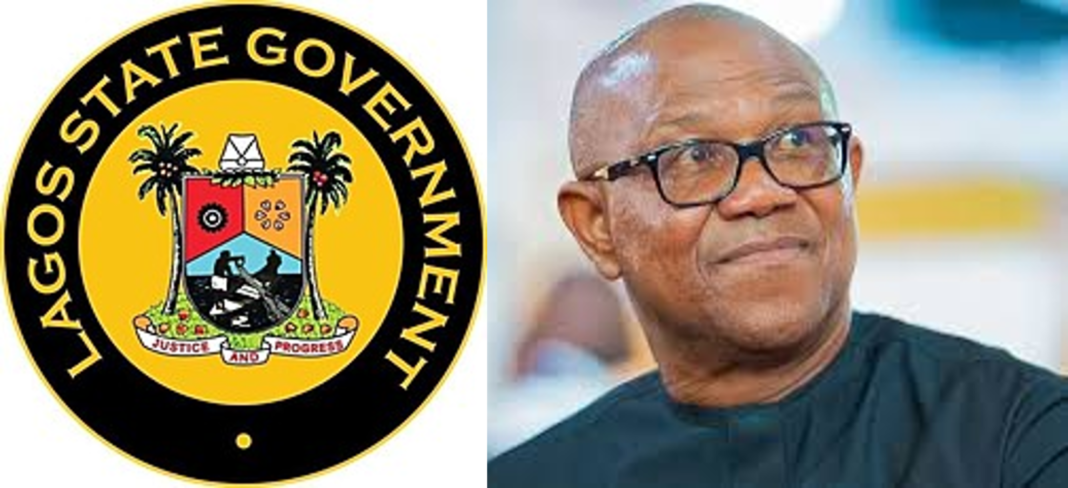The Lagos State Government has denied any involvement in the recent demolition of a property belonging to the younger brother of Peter Obi. The denial, issued through the state’s Commissioner for Information and Strategy, Gbenga Omotoso, has drawn criticism for what many see as a deflection without substance or accountability.
Obi had, in a detailed post on X, accused unnamed individuals of orchestrating a demolition of his brother’s company property in Ikeja without presenting a court order, demolition notice, or any official warrant. He described the act as “coordinated lawlessness and impunity,” linking it to a broader breakdown in governance and the rule of law.
In its response, the Lagos State Government stated that neither the Lagos State Building Control Agency (LASBCA) nor any other arm of the state had sanctioned or executed the demolition. The government further noted that it had “directed the Permanent Secretary, Office of Urban Development, to initiate a full investigation” into the incident.
We find it disturbing that Mr. Peter Obi would make such allegations without verifying the facts,” the statement read.
Many, however, argue that the government’s denial lacks transparency and failed to address critical questions:
If the demolition was not sanctioned by the government, who authorised it? Who provided the security cover for the unidentified contractors? And why is there no immediate protective response when property is destroyed in broad daylight?
While the government insists it upholds the rule of law, it has not provided an alternative explanation for how heavy machinery and security operatives accessed private property and carried out a multi-day demolition without interference from local authorities.
If state actors didn’t do it, and no one has been arrested for impersonation or illegal destruction, then the state has failed in its fundamental duty to protect lives and property.
Many say the government’s reaction is an attempt to distance itself from political fallout than a genuine effort to uncover what happened. Some see the call for an investigation as performative, an all-too-familiar tactic used to pacify outrage without delivering real accountability.
For Peter Obi and many watching the situation unfold, the key issue is not just the demolition, but the growing normalcy of lawlessness, where citizens, regardless of their prominence, are left helpless in the face of arbitrary state or state-enabled actions.
As of the time of this report, no arrests have been made, and the identity of those behind the demolition remains unknown. Meanwhile, the Lagos State Government’s investigation is still “ongoing,” with no timeline provided for public disclosure.
Until answers emerge, denial without accountability only deepens distrust, a sentiment that echoes Obi’s final remark:
“How did Nigeria get to this level of lawlessness?”

